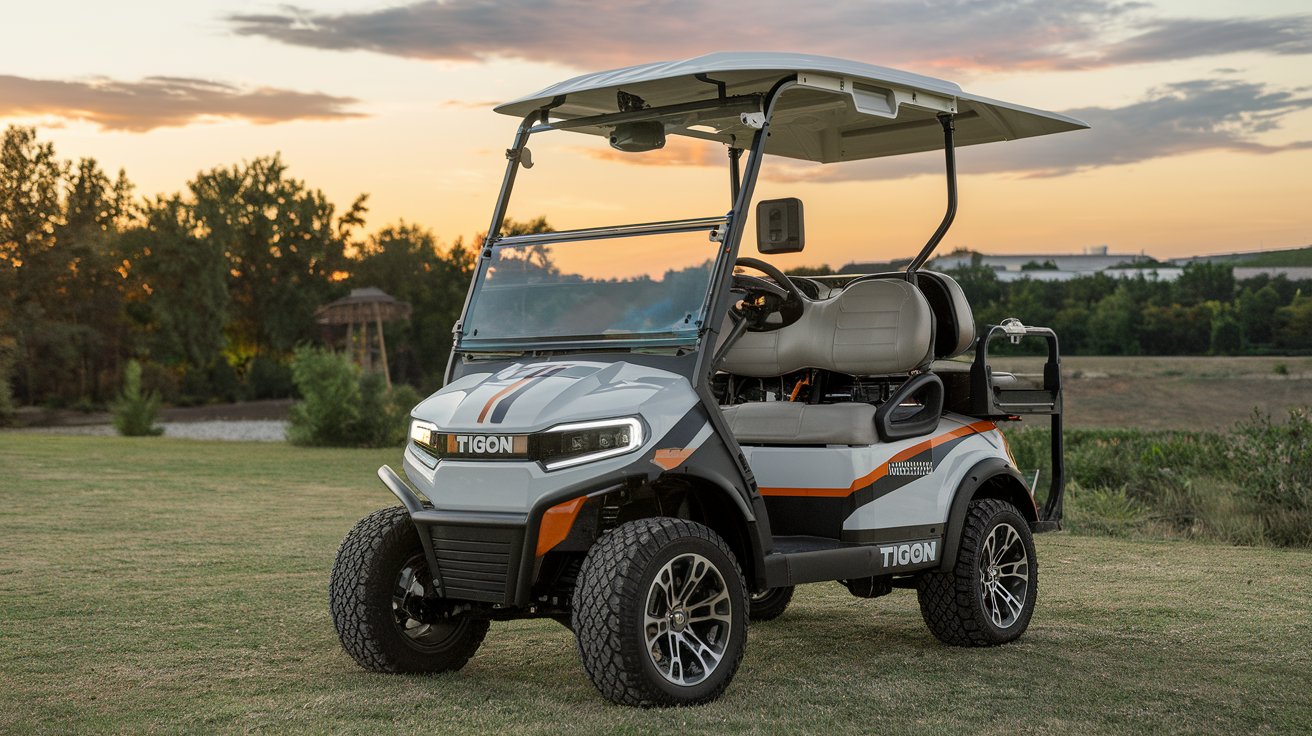
Electric vs. Gas: Choosing the Right Power Source for Your New Golf Cart
Choosing the Right Power Source for Your New Golf Cart
Choosing the right power source for your golf cart is a critical decision, whether you’re a golf enthusiast, a resort owner, or someone who wants a versatile vehicle for personal use. Both electric and gas-powered golf carts offer unique advantages and challenges. Understanding their differences in terms of cost, performance, maintenance, and environmental impact will help you make the right choice for your needs.

1. Upfront Costs
Gas-powered golf carts are often slightly more expensive than their electric counterparts due to their complex engines. A new gas-powered golf cart typically costs between $7,000 and $10,000, depending on features and brand. Electric models are generally more affordable upfront, with prices ranging from $6,000 to $9,000. However, carts with advanced lithium-ion batteries may cost more initially but provide long-term savings. Electric golf carts usually have a lower upfront cost unless equipped with premium batteries.
2. Operating Costs
Gas-powered golf carts rely on fuel, with an average consumption of one gallon of gas for every 25 miles. At $3.80 per gallon, operating costs can add up quickly. Maintenance costs for oil changes, spark plugs, and filters further increase expenses. In contrast, electric golf carts cost significantly less to run. Charging a battery (3-5 kWh) costs only $0.45 to $0.75 per charge, providing a range of 25-80 miles. Over time, electricity is 80%-87% cheaper than gasoline. Maintenance costs are minimal, especially with lithium-ion batteries that require little upkeep. Electric carts are far cheaper to operate over the long term.
3. Performance and Range
Gas models excel in range and power, traveling 100-150 miles on a full tank, making them better suited for rough terrains and heavier loads. Electric carts, with lithium-ion batteries, offer ranges of 60-80 miles, while lead-acid batteries average 30-40 miles per charge. Though their range is less than gas carts, electric motors deliver smooth, quiet power and instant torque, which is perfect for casual rides and golf courses. Gas carts offer longer range and more power, but electric carts provide smooth and quiet performance.
4. Maintenance Requirements
Gas engines require frequent maintenance, including oil changes, filter replacements, and spark plug servicing, with annual costs ranging from $300 to $500. Electric models have fewer moving parts, reducing maintenance needs. Lead-acid batteries require occasional water refills and cleaning, while lithium-ion batteries are virtually maintenance-free. Annual costs for electric carts are typically $100 to $200, making them easier and cheaper to maintain.
5. Environmental Impact
Gas carts emit carbon dioxide and other pollutants, contributing to environmental degradation, while their noise levels can be disruptive, especially in quiet neighborhoods or eco-sensitive areas. Electric carts, on the other hand, are eco-friendly, producing zero emissions and operating nearly silently. Their quiet operation and lack of pollution make them ideal for residential areas, resorts, and golf courses aiming to minimize environmental impact. Electric carts are the clear winner for sustainability.

6. Noise Levels
Gas engines produce noticeable noise, which can be bothersome in peaceful environments. Electric motors are nearly silent, offering a smooth and quiet ride that enhances the user experience. Electric carts are much quieter and better suited for noise-sensitive areas.
7. Customization and Features
Gas carts are versatile and can handle extensive modifications, such as lifted suspensions, heavy-duty tires, and performance upgrades. Electric carts, however, can also be customized with premium seating, tech add-ons like GPS or Bluetooth, and solar-powered options for added efficiency. Both types offer customization options, but gas carts may handle heavier-duty modifications better.
8. Resale Value
Gas models retain value in areas without reliable charging infrastructure, particularly in rural or off-grid locations. However, electric carts, especially those with lithium-ion batteries, are in high demand due to their eco-friendly features and low operating costs. Electric carts are gaining popularity and often fetch higher resale prices in urban and suburban areas.
9. Who Should Choose a Gas Golf Cart?
Gas-powered golf carts are ideal for users who need extended range (over 100 miles), heavy-duty performance, or carts for rugged terrain. They are also better suited for areas without convenient access to charging infrastructure.
10. Who Should Choose an Electric Golf Cart?
Electric golf carts are perfect for eco-conscious users who prioritize sustainability and quiet operation. They are ideal for golf courses, resorts, and neighborhoods that value low noise and zero emissions. Additionally, those seeking low operating and maintenance costs for long-term savings will find electric carts to be the better option.

Choosing between an electric and gas-powered golf cart depends on your specific needs. If you prioritize sustainability, quiet performance, and cost-efficiency, an electric golf cart is the ideal choice. For extended range, rugged performance, or off-road use, a gas-powered cart may be more suitable. Both options have their strengths, but as technology advances and environmental awareness grows, electric golf carts are becoming the preferred choice for a wide range of users. Explore the latest models and make the switch that best suits your lifestyle today!
GET THE GOLF CART LSV AT THE RIGHT PRICE!
Tigon Golf Carts proudly offers 0% Vehicle Financing, making it easier than ever to own your dream golf cart. With flexible payment options and competitive rates, we ensure that Upgrading or Purchasing for the first time is not only exciting but also financially feasible for our customers, allowing you to hit the road in style without breaking the bank.
















